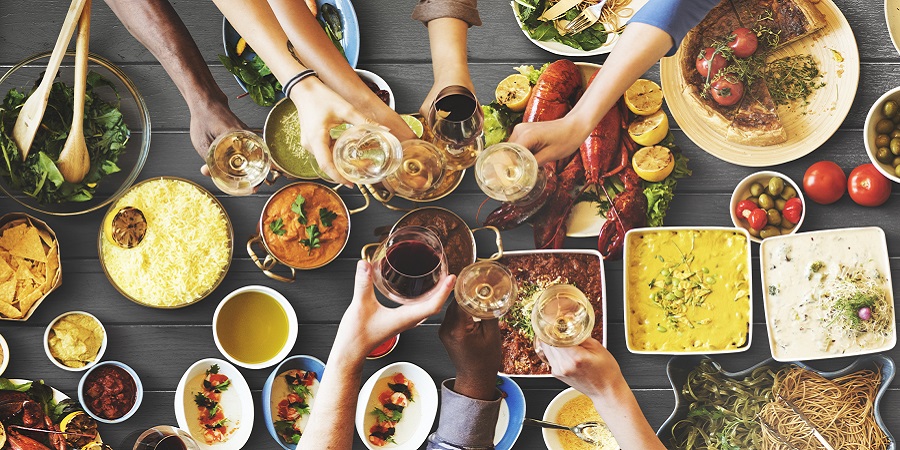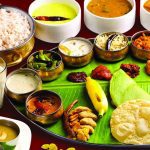
Energy – Are We Getting Enough From Food and Drinks?
When one is making efforts to maintain high energy levels, one of the key factors to keep in mind is never missing meals. When a person goes for more than 5 hours without any food, their body begins working empty.
Hunger begins to engulf the senses, resulting in thoughtless food selections (like going to the closest fast food place or vending machine.)
Rather, quick small snacks containing 150-200 calories should be used as a substitute. This can aid in reloading energy at a moderate pace until it’s time for the next meal. One can choose these items, which are packed with energy boosters. Otherwise, consume them as a snack when an extra boost of energy is needed pre-workout.
Let go of energy drinks and many cups of coffee to boost energy. In its place, incorporate these healthy foods for a natural perk in your step.
Table of Content
1. Coffee
Drinking Coffee probably would be your first choice when you are thinking of getting an energy boost.
- Coffee is rich in caffeine, which has the ability to swiftly transfer from the blood into the brain and constrain the effect of adenosine, a neurotransmitter that tranquilizes the central nervous system of the body.
- In consequence, the manufacture of epinephrine rises. This hormone is responsible for the stimulation of the brain and body.
Coffee contains only 2 calories per cup, yet its awakening impact on the body can result in feeling aware and attentive. Lately, it has been found organic coffee is richer in caffeine and antioxidants.
2. Yogurt
If you are searching for a fast boost afore exercising, an easy eat on the go snack, yogurt is a good snack. Yogurt comprises lactose, a component of milk, it is an abundant source of energy. It also has ample protein, which assists in reducing the absorption of lactose, allowing the energy boost to last longer.
3. Shrimp
Shrimps contain few calories and vitamin B12, this assists with energies breakdown. It also contains a good quantity of omega-3 fat, revealed to increase energy.
The high quantity of cholesterol in shrimp might be worrisome. However, recently Dietary Guidelines Committee Report mentioned guidelines concerning cholesterol consumption (of 300mg per day or less) are not staunch. It was determined to consume large quantities of cholesterol in foods, like shrimp and whole eggs, doesn’t raise cholesterol levels.
4. Chia Seeds
Their size is deceiving to the strength they harbor. Chia seeds absorb 10 times their mass in water hence they highly absorbent. Also, they contain a good balance of protein, fats, and fiber which gives an energy boost without a crash.
5. Fatty Fish
Fatty fish are great sources of protein e.g. Salmon and Tuna. They contain fatty acids and B vitamins, another reason they should be part of the diet.
- A portion of salmon or tuna delivers the required daily intake of omega-3 fatty acids and vitamin B12.
- Omega-3 fatty acids decrease inflammation in the body, which is a common reason for fatigue.
- In fact, certain studies resolved consuming omega-3 supplements could reduce fatigue, particularly in cancer patients and those recovering from it.
Moreover, vitamin B12 works with folic acid to create red blood cells and aid iron to function well in the body. Ideal levels of red blood cells and iron in the blood can lessen fatigue and surge energy.
6. Bananas
Keep in mind the light and ready to eat bananas are great when running low on energy. In a research, it was discovered that consuming bananas functioned as good as the sports drinks on keeping cyclists fuelled. It’s potassium-rich and also contains a lot of nutrients (like fiber and vitamin B6) that won’t be available in a bottle of Gatorade.
7. Quinoa
Quinoa contains protein, fiber, and iron. It is the best solution when one wants to recharge. In case you feel like making an extra effort, beat up these muffin bites made of Quinoa before you embark on the road.
One cup of quinoa contains; 39 grams of carbs, 5 grams of dietary fiber, 8 grams of protein and a generous amount of vitamins and minerals.
Albeit this superfood is loaded with carbohydrates, it contains a small glycaemic index, this is an indicator that the carbs will be digested gradually and the energy provided will be sustained.
Furthermore, Quinoa delivers above 20% of the RDI for magnesium, manganese, and folate. Enzymes need all of these nutrients to produce energy.
8. Strawberries
To have a swift dose, take a fistful of succulent strawberries. Natural sugar found in fruits (aka fructose) is a wiser option as compared to the one found in candy bars. As fruits contain fibers, which causes the body to dissolve the sugar at a slower pace.
9. Edamame
Edamame is an easy and filling eat on the go snack.
It is moderately low in calories but compromises copious quantities of protein, carbohydrates, and fibers. Only one cup of edamame can contain up to 17 grams of protein, 16 grams of carbohydrates and around 8 grams of fibers.
Moreover, it contains great quantities of vitamins and minerals which can cause a rise in energy in various ways. One cup of edamame offers 79% of the RDI for manganese and 121% of the RDI for folic acid.
Folic acid combined with iron promotes energy and battles off fatigue and anemia, while manganese causes energy generation through the breakdown of carbs and protein.
Finally, edamame comprises excessive quantities of molybdenum, which performs as an incentive for enzymes and contributes to the breakdown of nutrients for energy
10. Hummus
Hummus originated in the Mediterranean, formed from blended chickpeas, sesame seed paste, olive oil, and lemon juice. Components of chickpeas include carbs, protein, and fat. Hummus gives a nice pump of energy because of the carbs, while the protein and fat aid in stabilizing blood sugar by reducing the breakdown of carbohydrates. Hummus can be used as a dip for veggies or as a condiment on sandwiches. Bon appétit!
11. Almonds
Almonds comprise of magnesium, an electrolyte required for adequate functioning of muscles. Researches have established that people with little magnesium levels incline to tire out easily during the workout.
Almonds also deliver a load of B-vitamins including niacin, folate, thiamin, and riboflavin, which aid in converting food to energy.
12. Popcorn
Over here we’re talking about air-popped popcorn, the calories and fat-laden movie theatre popcorns aren’t included. Many people are amazed to find that popcorn is a whole grain. Air-popped popcorns have around 30 calories per cup, so one could consume 3 or 4 cups without a second thought. Also, popcorns have loads of fiber to keep one full for long.
13. Oatmeal
Oatmeal is a whole-grain cereal that offers long-lasting energy.
It has beta-glucan, a soluble fiber which creates a dense mixture when water is added. This gel when in the digestive system postpones stomach emptying and the absorption of glucose into the blood.
Also, oats are packed with vitamins and minerals which help the energy manufacture process. These comprise B vitamins, iron, and manganese.
The mixture of these nutrients marks oatmeal as an ideal food for sustained energy release.
14. Apples
Apples are one of the most famous fruits worldwide, they are a good source of carbs and fiber.
A medium-sized apple (185 grams) supplies around 25 grams of carbs, 19 grams of sugar and up to 4 grams of fiber.
Due to the presence of a rich combination of natural sugars and fiber, apples are able to deliver a steady and sustained energy release.
Moreover, apples have a great number of antioxidants. A study has revealed that antioxidants could slow the digestion of carbs, so they discharge energy over a more prolonged span of time.
Finally, it is advised to consume entire apples. Fluids and purees, which are free of fiber, are digested quicker and can only offer quick digested energy.
15. Water
OK, so water is not technically a food, however, it is one of the most essential nutrients (yes, water is counted as an essential nutrient). It comprises two-thirds of our body, so it is vital to stay hydrated. Water aids in controlling bodies temperature, digestion, and works as a vessel in several metabolic procedures of the body, including the production of energy. Even though 8 cups of water every day is the typical recommendation, the amount of water needed differs from the person. One should know how much water they have to drink each day.
16. Yerba Maté
Yerba maté is a fluid prepared from dried leaves of a plant originating from South America. It has been revealed to have several health benefits.
Yerba maté contains antioxidants and caffeine. An 8-ounce cup contains 85 mg of caffeine, which is comparable to the quantity in a small cup of coffee.
The caffeine in yerba maté endorses the manufacturing of the hormone epinephrine, which boosts energy. Though, different another stimulant, yerba maté does not impact blood pressure or heart rate.
Research on animals and humans suggests that yerba maté may increase mental concentration, memory, mood, and even physical movement.
The Bottom Line
There is an ample assortment of foods which can help increase energy.
Either they are bursting with carbs for energy available on the go, or fiber or protein for a steadier release of energy, these foods will aid in increasing one’s power and stamina.
Furthermore, a number of these foods also comprise a substantial amount of various nutrients, including vitamins, minerals, and antioxidants.
All of these compounds have been proved to be a part of the manufacturing of energy within the cells, and they all offer various health benefits.


